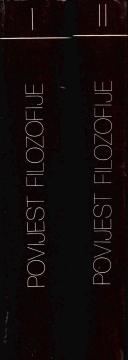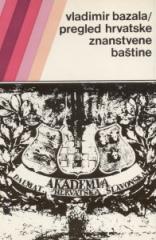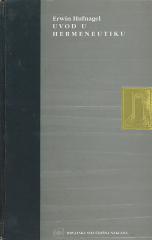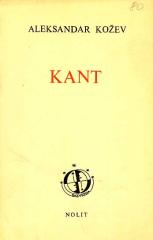
Povijest filozofije I-II
Windelband's History of Philosophy is one of the most important books on the history of philosophy, covering the development of philosophical thought from ancient Greece to the end of the 19th century. With the addition of Philosophy in the 20th Century b
Windelband's approach to the history of philosophy is innovative because, rather than a chronological account of events and biographies of philosophers, he explores key philosophical problems and concepts and then traces how they have developed through history. Windelband sees the history of philosophy as a series of problems, ideas and questions that have been repeated and debated within the philosophical tradition, forming an unbroken chain of philosophical reflection.
First part: Ancient and medieval philosophy In the first part, Windelband explores the beginnings of philosophical thought in ancient Greece, covering pre-Christian thinkers such as Thales, Heraclitus, and Pythagoras, who laid the foundations for Greek philosophy. The concept of the cosmos, the order of nature and a rational understanding of the world is developing. It then traces the origin and development of the key philosophical schools of ancient Greece, including the sophists, Socratic ethics, and the works of Plato and Aristotle, to which it pays special attention.
Plato's theory of ideas and Aristotle's philosophy become the fundamental pillars of ancient thought, offering various theories on metaphysics, epistemology and ethics. The Hellenistic period includes schools such as Stoicism, Epicureanism, and skeptical philosophy, which dealt with questions of human happiness and relationship to the world.
Windelband also covers medieval philosophy, emphasizing the influence of Christian thought on philosophy. Medieval philosophy focuses on the synthesis of Greek philosophy with Christian theology, where important thinkers such as Augustine, Anselm and Aquinas. The key themes here are the existence of God, the nature of evil, and the relationship between faith and reason.
Second part: Modern and modern philosophy The second part of the book deals with the development of modern philosophy, which begins with the Renaissance and continues with rationalism and empiricism. Major thinkers here include Descartes, Spinoza, Leibniz, Locke, Berkeley and Hume, who explore epistemological problems and the limits of human understanding.
Descartes is considered the father of modern rationalism, laying the foundations for modern philosophy through doubt and the concept of "Cogito, ergo sum" (I think, therefore I am). Empiricists such as Locke and Hume challenge rationalism by arguing that knowledge is based on experience, leading to questions about the nature of perception and reality.
Windelband goes on to discuss German classical philosophy with an emphasis on Kant, whose Critique of Pure Reason revolutionized philosophy by arguing that the categories of reason are the basis of knowledge. Kant's work paves the way for later thinkers, such as Fichte, Schelling, and Hegel, who explore dialectics, absolute idealism, and the nature of freedom and subjectivity.
Windelband's approach to the history of philosophy differs from traditional historical surveys because it focuses on a "problematic" history of philosophy, where philosophy is seen as a discipline that develops in response to fundamental questions and challenges. He believes that the history of philosophy can be better understood through the questions and concepts it explored, than through the chronology or biographies of individual philosophers.
Windelband's History of Philosophy is an extremely important work because of its comprehensive approach and clarity in showing the development of philosophical ideas. The work is still relevant today because it offers in-depth insight into key philosophical problems and shows how they have developed throughout history, highlighting the connections between philosophical traditions of different periods.
No copies available
The last copy was sold recently.




